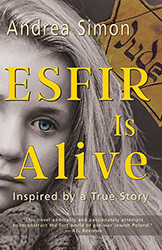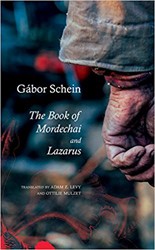“I don’t know it yet, but I was born in the wrong place at the wrong time,” the nameless, omniscient narrator of The Kaminsky Cure tells us in the first paragraph of the novel. The Kaminsky Cure follows the stories of a Protestant minister, his converted, formerly Jewish wife, and their half-Jewish children in a small town in Austria during World War II. The narrator is four years old when Austria is invaded, and he wonders why his parents aren’t joining in the “general jubilation.” Soon, however, he is forced to understand.
The minister, Willibald, and his wife, Gabi, have a terrible relationship — one that consists of regular screaming and shouting, the throwing of dishes and pictures, and sometimes physical violence. These contretemps do nothing to help the children adjust, nor do the gall bladder attacks from which Gabi suffers after these scrimmages. The children are soon banned from the local school and must travel four hours a day to reach a school that will accept them, not without ostracism and mockery.
Each child is different: the eldest, Ilse is an otherworldly girl who prays constantly to have the taint of Judaism removed from her; Martin, the second child, is an avid non-Nazi and dreams of building panzer tanks to help defeat the German army — a fantasy no more tangible than Ilse’s. Sara, the next child, escapes reality by writing fables that have truth in them, and the narrator simply tries to get on. Willibald is uninterested in his children’s education, but Gabi is dedicated to it and goes to extreme, dangerous lengths in order to acquire schooling and tutors for her beloved offspring. Frau von Kaminsky, a high-born German who is an old friend of Gabi’s, instructs her in how to get along in a world turned upside down.
In a daring move, Gabi takes the narrator and Martin to Berlin to her best friend’s funeral. She is still considered “privileged” since she is married to an Aryan. Her friend’s sister convinces Gabi to meet with some of her Jewish relatives still in Berlin. They appear downtrodden and grey to the narrator, and he doesn’t want to touch them. As they leave, his great-uncle calls out, “Remember us.” This phrase means more and more to the narrator as time goes on and an evacuation order comes for Gabi. How she handles it is the crux of the novel.
This novel is unique for the combination of sophistication and naïveté that the narrator brings to its telling. The duplicity, starvation, and deprivation the narrator’s family endures despite Willibald is poignant. Towards the end, the family is surviving on boiled nettle soup with a few dry bread croutons that Martin acquires from a German girlfriend. Another interesting facet of the novel is its portrayal of the suffering the local Nazis undergo during the balance of the war when the Führer isn’t doing so well.
This is often a hilarious book as well as a heartbreaking one. The young narrator, with his constant attempts to understand what is going on, provides comic relief in a novel of cruelty, death and destruction.
Related Content:





